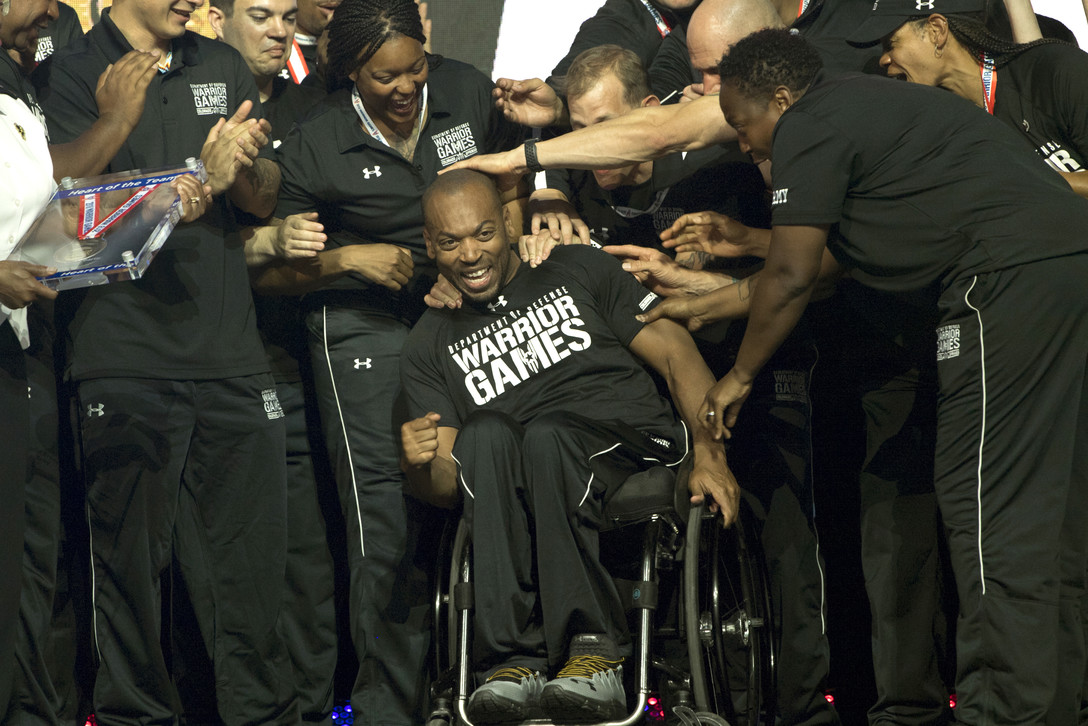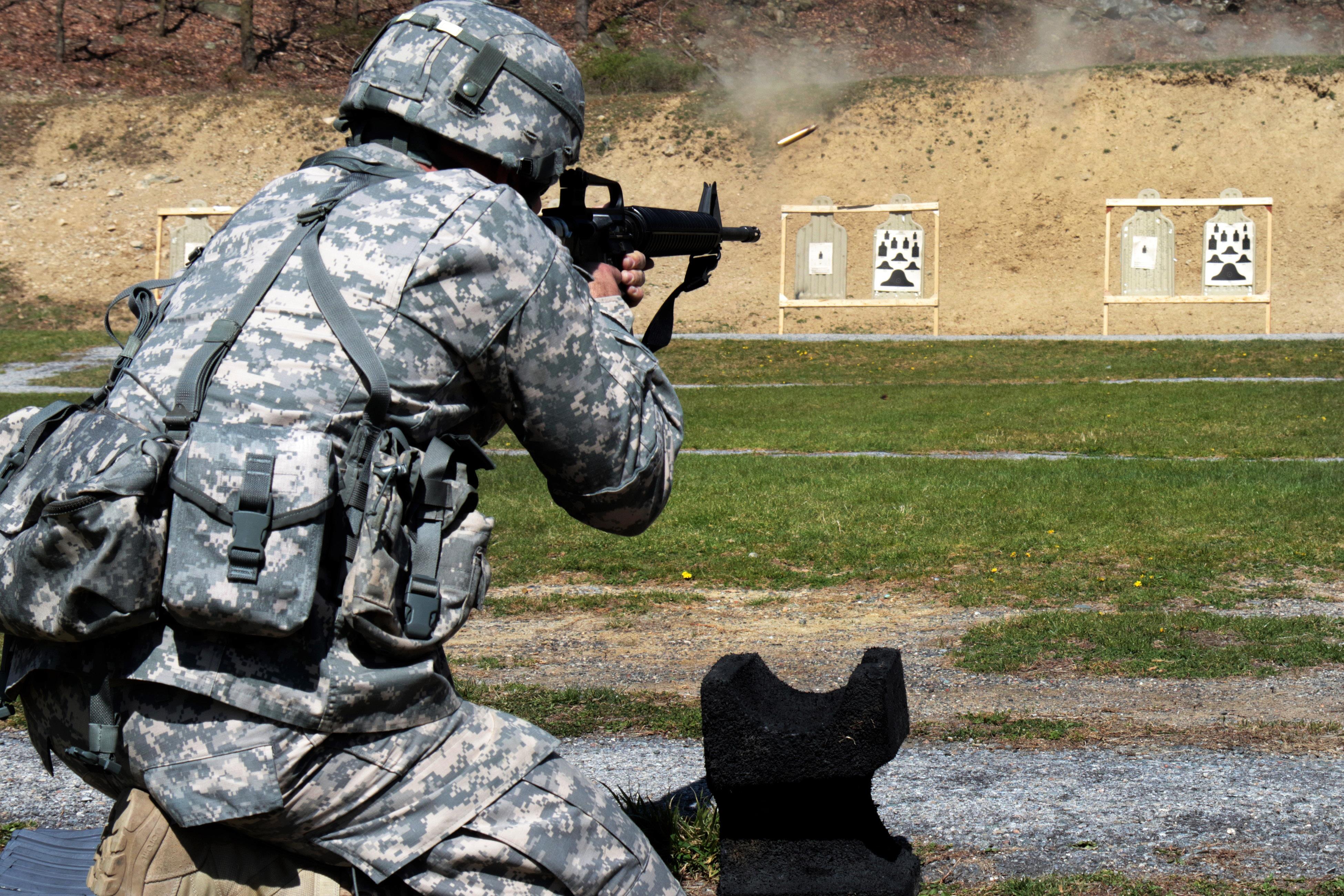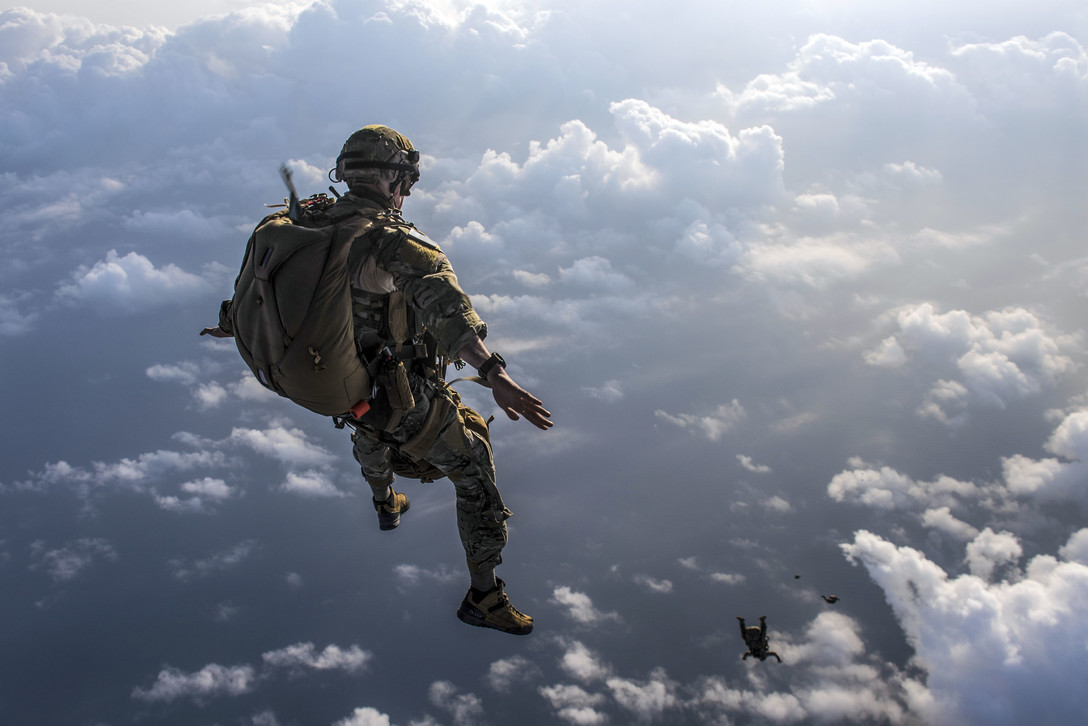
Team Army veteran Spc. Brent Garlic reacts to being awarded the 2018 DoD Warrior Games Heart of Team Award. June 9, 2018. (DoD photo by EJ Hersom)
Life is not a solo act. It’s a huge collaboration, and we all need to assemble around us the people who care about us and support us in times of strife – Tim Gunn
Humans are social creatures. Sure, there are varying degrees of introversion and extroversion that people are comfortable with. We still need other people in our lives to feel complete, though. When it comes to health and wellness in post-military life, the presence or absence of a social network…big or small…can make a huge difference in life satisfaction.
While social connectedness heals, isolation hurts. Think about it; in the deepest, darkest moments that we have experienced, were you alone, or were others there? And you don’t have to be physically alone; many veterans feel like they’re alone in the middle of a crowd. Isolation is as much a state of mind as it is a physical state.
Studies have shown that a strong social network, including family, friends, trusted colleagues, and positive social interactions, lead to greater life satisfaction in post-military life. Some of the benefit of the social network is that it can prevent a crisis. Another benefit is that it can provide support during a crisis. With a strong social network, a veteran may not ever get to the point of psychological crisis, and if they do, the network is there to support them. Our relationships matter, and without them, we’re in danger. That doesn’t mean to say that we should immediately turn into social butterflies; some of us aren’t built like that. But without some type of social network, post-military life can be much more challenging than it needs to be.
Social Support Can Prevent A Crisis
Often, the greatest benefit that a social network brings is the ability to prevent a crisis moment before it happens. Here, I’m talking about a psychological crisis; a “nervous breakdown,” or suicidal ideation. Blowing up, anger and rage. In one research study that interviewed a range of military veterans from many different eras, having a strong social support was a protective factor against these types of incidents. Those former service members who had a lot of social connections reported better overall wellness and used less mental health services than those who were socially isolated. The social connections served as a sort of barrier between the veteran and the effects of combat, adverse childhood experience, and current life stressors.
The presence of a strong social network provides the veteran with more resources to avoid a crisis situation. Having someone that you can easily talk to, who supports us in a non-judgmental way, can reduce much of the stress that builds up and sends us to a crisis point. Just being able to reach out and know that there’s someone there can reduce a significant burden. During a recent conversation with Sally Spencer-Thomas on the Head Space and Timing Podcast, she talked about having that “three in the morning friend.” The one person, or group of people, that you can call at three in the morning and you know that they will pick up the phone; just knowing they’re there can keep us from getting to a crisis point.
Social Support Can Alleviate A Crisis
Sometimes, the lift is too heavy, and we find ourselves in a crisis moment despite our social support. Further research helps us understand that having a strong support network can lead to better outcomes in treatment. In the same study described above, veterans who actively sought help from their support network were more likely to need and use mental health services. If a veteran is struggling with problems related to their military service, the help that they get from their informal care network leads to better outcomes in treatment.
This finding is supported in other studies, as well. In January of 2018, the National Academies of Sciences, Engineering and Medicine released a report on a congressionally mandated evaluation of VA Mental Health Services. One of the most significant findings was that Post 9/11 veterans who have a strong social network that support the veteran seeking treatment were more likely to use mental health services at the VA than veterans without such support. I see this nearly daily with the veterans I see in therapy; those who have family and friends who support them seeking treatment report more satisfaction. Those that don’t have the same support can struggle to improve.
Isolation Can Exacerbate a Crisis
And then there’s the opposite side, the dark side. Being isolated, feeling like we don’t have good social connections, can lead to a crisis moment. A veteran without a strong social network can find themselves isolated and alone. The Interpersonal-Psychological Theory of Suicide proposes that a suicidal crisis occurs when a veteran feels as though they are a burden to others, experience social isolation, and have acquired the ability to inflict-self harm.
A review of suicides in the military by Carl Castro and Sarah Kintzle identified that, when a veteran feels like a burden to those around them, they are more likely to turn inwards. Without a sense of social belongness, this sense of burdensomeness can’t be denied. And neither of these two factors would lead to self-injury if the individual hadn’t acquired the ability to harm themselves. These three factors are like three parts of an equation; if all are present, there is significant danger. If any one of the three are absent, the danger is much less.
Social Networks Are Critical to Health and Wellness
The fact is, as I said in the beginning, humans are social creatures. When we served, the military handed our social network to us. For better or worse, the buddies that we had were the buddies we had. We may have hated some of them, and loved others, but at least they were ours. In post-military life, one of the needs we have to meet is building another social network. It needs to be as strong or stronger than the one we had in the military.
Satisfaction in post-military life depends on it.
Want to keep up with all of the Head Space and Timing content? Subscribe Here

The Head Space and Timing Blog is supported by the Colorado Veterans Health and Wellness Agency, a 501(c)3 Nonprofit in Colorado Springs, Colorado. The goal of the CVHWA is to provide military culturally competent mental health counseling to veterans and their spouses, regardless of characterization of discharge, time of service, or era of service. Our vision is to assist veterans to identify and remove barriers to their mental, physical, emotional, and behavioral wellness. For questions or inquiries, contact us!


